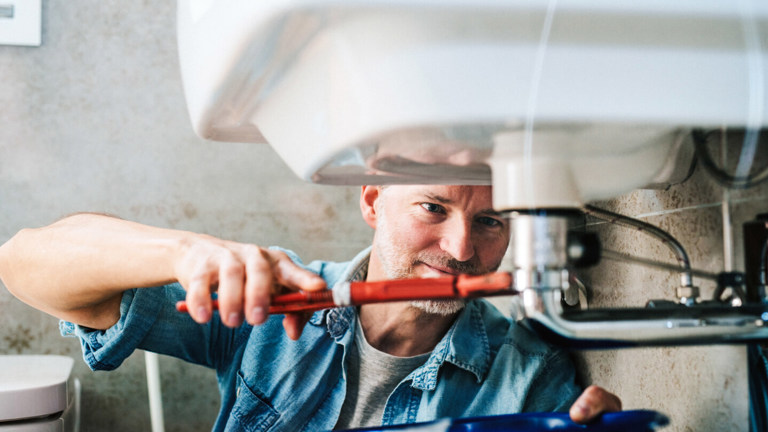Most of us remember pretty clearly what we paid for our car – after all, they’re usually a major investment. But what’s your car worth now? Understanding how to accurately estimate that is important because a lot rides on getting your car valuation right.
If you’re selling your car, an accurate car valuation can help you negotiate a fair price and hopefully give you more money to spend on the next car you buy. It can also give you confidence in holding out for the right deal, whether you’re selling online or looking to secure a good trade-in price. When it comes to insuring your car, the insurer in question calculates the vehicle’s probable value.1
What do we mean by car valuation?
Ross Booth, Global General Manager of automotive research specialist RedBook, points to the self-evident truth at the heart of car valuation: “A car is worth what someone is prepared to pay for it.”
And that preparedness is influenced not only by known factors such as a used car’s age, record of regular services, kilometres driven and condition (all of which contribute to a depreciation in your car’s value), but also by market trends.
In the 1970s, for example, petrol shortages sparked demand for smaller, more fuel-efficient vehicles. More recently, supply issues as a result of the COVID-19 pandemic caused used car prices to spike across the board, although they have since returned to near-normal levels.
Tools to establish your car’s market value
There are a number of online valuation tools that allow you to plug in information about your vehicle, compare it to a database of recent sales and market factors, and calculate what your car is worth today.
Of course, the valuations provided are only a guide, but if you enter the same details into two or three tools, you should land on a ballpark figure that you can work with.
- carsales provides a free calculator and, like a number of sites, will make you an instant offer (subject to some conditions).
- CarsGuide gives you a free instant price guide based on make, model and year, and then lets you dive deeper into variations such as engine size, transmission and seating.
- Drive claims to accurately calculate the current trade-in or market value of any Australian used car, and will also make you an instant offer.
- RedBook offers a personal valuation report for a fee.
When using these tools, it helps to have the specific model and configuration of your car to hand. A 2011 Toyota HiLux, for example, comes in multiple configurations, from single cab to double cab, petrol- or diesel-powered, and in various engine sizes. All of these can make a difference to the market value of the vehicle.
What’s the next step in your used car valuation?
Once you’ve got a price guide from a valuation tool, consider the following factors, which may positively or negatively impact how much you can sell your car for:
A high or low mileage
If your mileage is high, especially if it’s over 100,000km, you’ll probably need to accept a lower price. When choosing between two very similar cars, buyers will likely opt for the car with the lowest mileage.
Care and condition
A clean interior, a lack of marks or dings on the exterior, pristine upholstery – all of these things make your car look well cared for and attractive, building trust with buyers. They’ll also give you confidence in demanding a good price.
Supply and demand
Research car yards and online sales sites to establish the number of other used cars for sale that are the same make and model as yours. These are your competition, and a surplus of options will drive down the price.
Documents and receipts
If you can produce receipts for regular servicing, significant parts you’ve invested in, or work you’ve had done over the years, you’ll also be able to command a higher price.
Common mistakes in car valuations
Booth says people often make the mistake of assuming that what other sellers are asking for their car online is what that make or model is worth.
“That's not what cars sell for; that’s what cars are advertised for,” he explains.
“People will try to maximise the value when they first put their car up for sale, but will often reduce the price a couple of times, and when they start negotiating with someone, they might decrease the price again.”
Similarly, if you scope out the prices asked for your car in used car dealerships, don’t assume the price on the windshield is an indication of the price you can expect from the private sale of a similar vehicle.
Dealers need to bring cars up to roadworthy and warrantable standards – in most states (including New South Wales, Queensland and Victoria), used cars bought from dealers usually come with a statutory three-month or 5,000km warranty (subject to age and odometer reading), so they’ll generally charge more than a private seller.2, 3, 4
Do electric cars hold their value better than traditional cars?
As electric vehicles (EVs) get more popular in Australia, technology changes rapidly. Range (the distance an EV can travel on a single charge) is steadily increasing, which makes older EV models seem obsolete.
“People see an EV not as a car but as a technological purchase,” says Booth, who draws a comparison to smartphones. Why buy an iPhone 11 or iPhone 12 when you could have the latest model?
“There’s stronger demand for new cars, and that demand is not translating into the used car market,” he says. “As a general statement, EVs don’t hold their value as well as traditional internal combustion engine cars.”
Do modified cars lose their value? Are they harder to sell?
There’s no clear-cut answer to these questions. Your idea of the perfect car, with modified exhaust, custom wheels and a fancy paint job, won’t appeal to everyone. However, it could be a magnet for someone.
Prepare for a longer sales process and accept that you may not recoup what you spent on those modifications.
Once you’ve settled on a valuation you’re happy with, it’s time to get your car on the market. Pick up some expert tips on how to sell your car online here.
Article by guest writer Natalie Filatoff
1 See our Car PDS for full details
2 Source: New South Wales Government – Buying a used car
3 Source: Queensland Government – Guarantees and warranties for second-hand vehicles
4 Source: Consumer Affairs Victoria – Warranties on used cars



